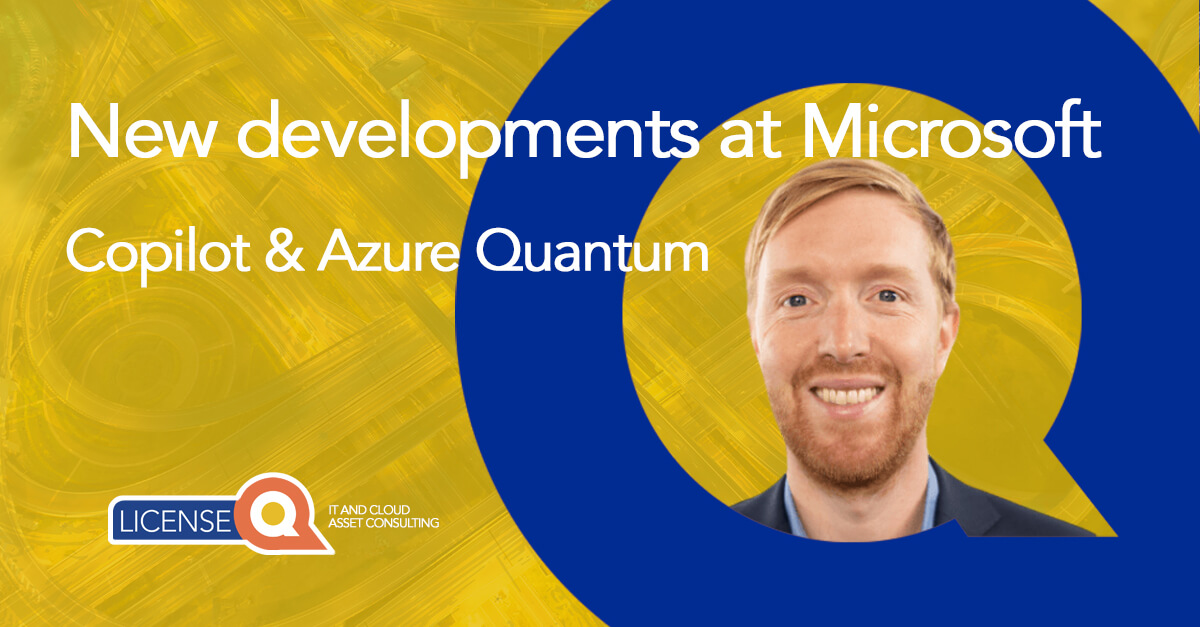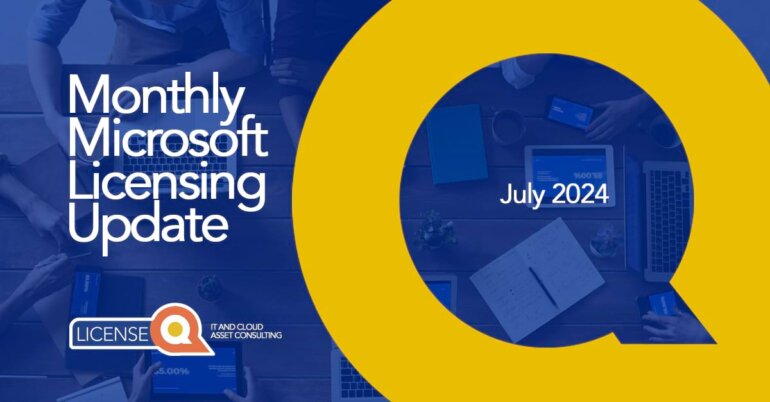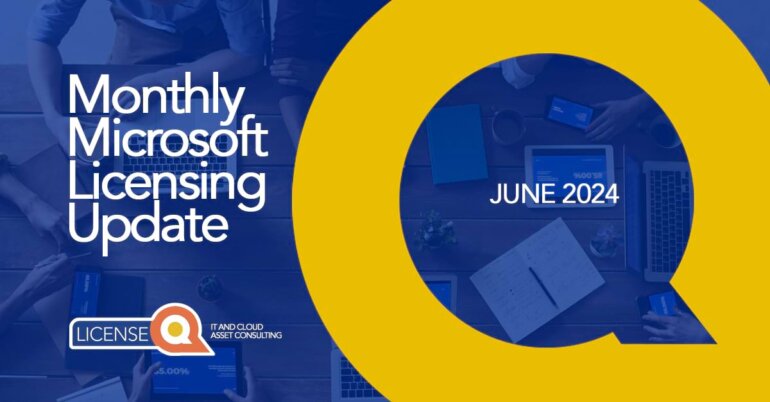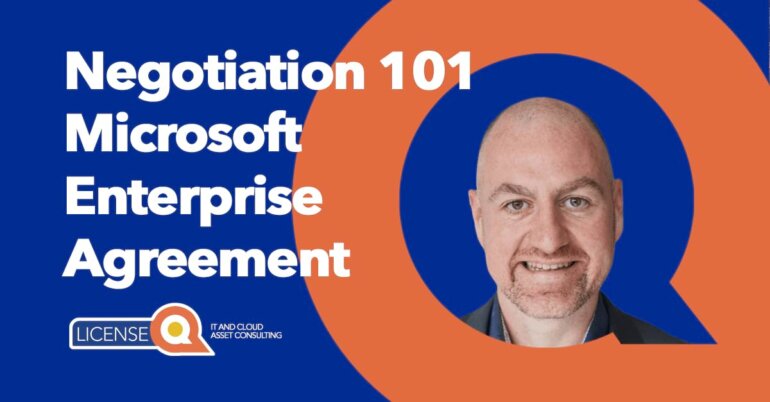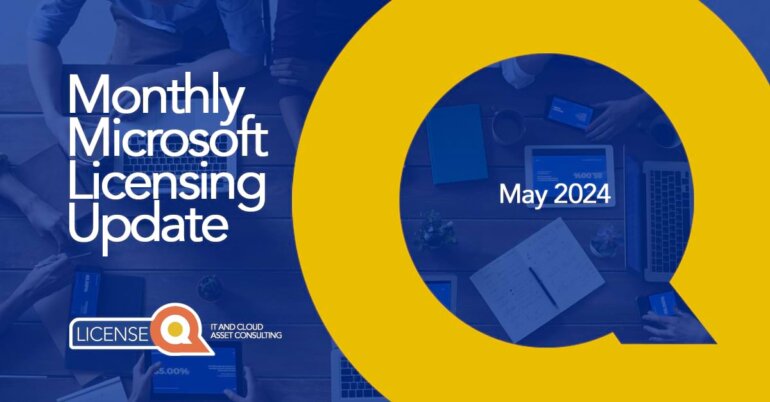Microsoft Copilot & Azure Quantum - recent developments at Microsoft
Microsoft just released new information regarding two new exciting products! You might have already seen it in your newsfeed, but here is some more information about:
Below we share our view on these new services from Microsoft.
Microsoft Copilot
According to Microsoft, Copilot combines the power of large language models (LLMs) with your data in the Microsoft Graph and the Microsoft 365 apps. It is embedded in Microsoft 365 applications such as Word, Excel, Teams and more.
Copilot is going to be accessible through a new solution called Microsoft Business Chat. This solution allows Copilot to give input through natural language prompts: basically you can talk to your computer.
Microsoft has now released the licensing model for Copilot, and below is the gist of it:
- You must have a license for M365 E3 or M365 E5
- You must have an Azure Active Directory account (through which you can access the M365 apps and services that work with Copilot)
- You must be on the Current Channel or the Monthly Enterprise Channel for Microsoft 365 apps (see here if you are unfamiliar with these)
Managing Copilot
Now that you know the requirements, it is important to also understand how to manage them. Management is done simply from the Microsoft 365 Admin Centre. Here you are able to assign licenses to your users, however you might prefer to assign them through Azure AD Group Membership or the PowerShell options that you might be familiar with.
As with most Microsoft products, the question of Security, Privacy and Data Residency might arise. Microsoft states that Copilot is built with this in mind and with the same principles that they use for all their products.
Your data as such is not used to train any AI models and the Copilot service only uses your data for your purposes. It doesn’t leverage OpenAI’s public services. Rather, it uses the Azure OpenAI Service, which is hosted in the Microsoft data centre (and it routes you to the nearest one you have your tenant set up in). No data is written outside this “home region” and it follows the EU Data Boundary regulations.

Azure Quantum
Now a second item that intrigues us, is the post by Satya himself linking to the blog post for Azure Quantum.
Like AI, Quantum has long been a cool buzzword that works well on the IT crowd. Microsoft increased its focus on quantum computing in the past years and it seems to be paying off. Microsoft announced three main things:
1. Azure Quantum Elements
This is a new system that aims to accelerate chemical and materials science today through the scale of Azure High Performance Computing (HPC) and the speed of AI. Azure Quantum will be available in private preview as of June 30th 2023 and mainly targets boosting researcher productivity through automated workflows and the new Copilot in Azure Quantum.
2. Copilot in Azure Quantum
A dead giveaway as we ended point 1 with this. This is a tool that can generate underlying calculations and simulations, query and visualize data, and help get guided answers to complicated concepts. It should also help write code for today’s quantum computers.
3. Microsoft’s roadmap to a quantum supercomputer
Microsoft lists three different “levels” to Quantum Computing, namely:
- Foundational: quantum systems running on noisy physical qubits
- Resilient: quantum systems that operate on reliable logical qubits
- Scale: quantum supercomputers that can solve impactful problems
At this moment, research is ongoing in level 1 and Microsoft announced they are able to create and control Majorana quasiparticles. This is the stage where they claim to be able to move from level 1 to level 2, so they are well on their way to solve the issues to eventually arrive at level 3!
Quantam a reality?
Quantum is obviously not just a buzzword anymore and with the active involvement of organizations like Microsoft, it might become a reality rather sooner than later. By no means are we experts on this topic, but developments like this do get our IT-hearts racing! We will continue to closely follow the research and progress that Microsoft is making here!
We hope you find our blogs interesting. Do leave your comments and/or questions for us to review!
If you want to find out more about LicenseQ or the world of Microsoft licensing, visit our website or YouTube channel. We regurlarly post new content with interesting insights into Microsoft products and licensing.

